
U.S. Naval Hospital Guam Collects Convalescent Plasma from Sailors
.ashx?h=407&la=en&mw=720&w=720&hash=F24F70326DEE51F54F25CAD8A9B3DC6E18E30ED31805030F74E977142AD167EA)
U.S. Naval Hospital Guam Hospitalman Apprentice Rebekah Morrison records the weight of convalescent plasma units collected from Sailors who recovered from COVID-19. (U.S. Navy Photo by Jaciyn Matanane/Released)
The COVID-19 Convalescent Plasma Collection Program (CCP) is a Department of Defense effort to collect 10,000 units of convalescent plasma donated by members of the military community who have recovered from the disease. Convalescent plasma will be used to treat critically ill patients and to support the development of an effective treatment against the disease. Eligible donors should contact the Armed Services Blood Program at: https://www.militaryblood.dod.mil/Donors/COVID-19andBloodDonation.aspx to find a complete list of available collection centers.
U.S. Naval Hospital Guam began collecting COVID-19 convalescent plasma (CCP) May 31 in support of the Department of Defense effort to develop therapeutics to support active duty readiness.
USNH Guam coordinated a four-day evolution with Naval Base Guam at the hospital’s Armed Services Blood Bank Center to collect the CCP, which is the liquid part of blood from patients who have recovered from an infection. Recovered COVID-19 patients have virus-specific antibodies that may help those currently fighting COVID-19 recover and keep those who are moderately ill from becoming seriously ill. While there is currently no approved treatment for COVID-19, CCP has been successfully used to counter other viral infections and may help fight this new virus.
During the four-day event, CCP units were collected from 138 volunteers, all Sailors assigned to the aircraft carrier, USS Theodore Roosevelt, who have fully recovered from COVID-19. Their donations will help the larger effort of working towards a possible treatment for COVID-19 and may help others fight the disease.
“We had a 4-day window to recruit and screen volunteer donors, and to collect, manufacture, and test these products,” said Navy Lt. Cmdr. Stephanie Golla, USNH Guam Blood Bank Donor Center department head and Area Joint Blood program officer. “This resulted in the collection of over 200 convalescent plasma units that will be available for transfusion.”
USNH Guam screened all volunteer donors to determine whether they met the eligibility requirements outlined by the U.S. Food and Drug Administration. To be eligible, a donor must be in good health, fully recovered from COVID-19, and meet other specific criteria, such as having a documented positive test.
“We are grateful for their willingness to donate,” said Golla. “This would not have been possible without them.”
Golla expressed that the USS Theodore Roosevelt sailors, with their display of courage and mental fortitude in this endeavor, are exemplary models of our fighting force.
“It feels good to be a part of this process by having a purpose other than being quarantined,” said Navy Aviation Electronics Technician 2nd Class Charles Curry. “I feel grateful for the time USNH Guam staff have taken out of their lives to help us.”
USNH Guam collected CCP to serve in the production of antibody therapeutics and treatment for its service members and beneficiaries infected with the virus. DoD’s efforts to make treatment available at its health care facilities support its mission of a medically ready force.
“This process shows we are step a closer to home and ready to get back to a new normal,” said Curry.
Guam Plasma Collection
Photo
7/2/2020
.ashx?h=68&la=en&mw=120&w=120&hash=0B5A7CC2C0FF6A6ED4927F1CA04D78C26FD98BD868607C5947D4B87BBCEA9905)
U.S. Naval Hospital Guam Hospitalman Apprentice Rebekah Morrison records the weight of convalescent plasma units collected from Sailors who recovered from COVID-19. (U.S. Navy Photo by Jaciyn Matanane/Released)
Pentagon leaders brief department's COVID-19 response to reporters
Article
7/2/2020
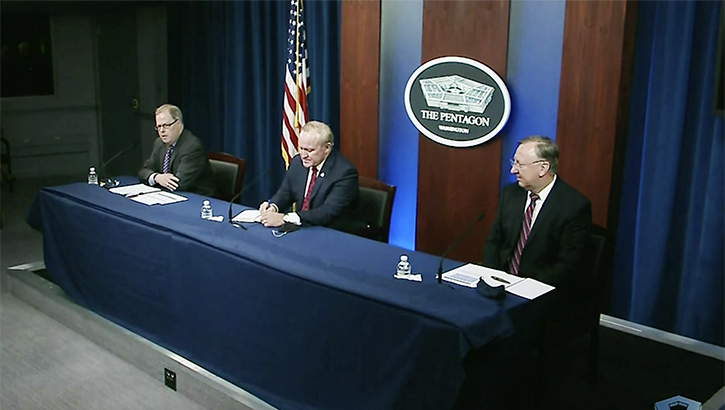
The COVID-19 pandemic affects each area of the nation differently. Local leaders at military installations decide protocols for public safety on a case-by-case basis. The Military Health System supports those leaders by providing health surveillance data, updated to reflect current information.
Confronting the Coronavirus and Countering Complacency
Article
7/2/2020
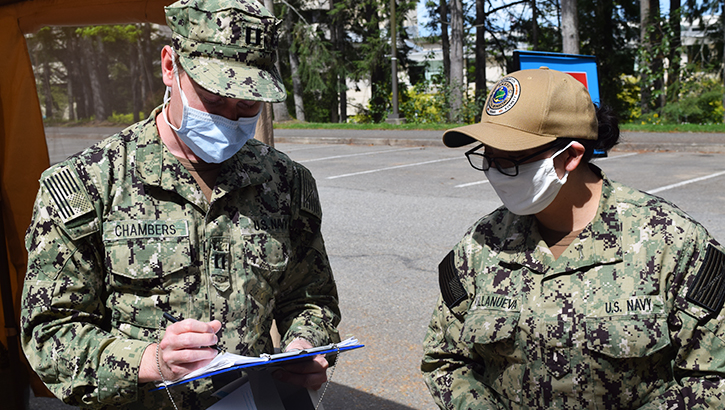
Call it the COVID-19 complacency conundrum.
BAMC Change of Command 2020
Article
7/1/2020
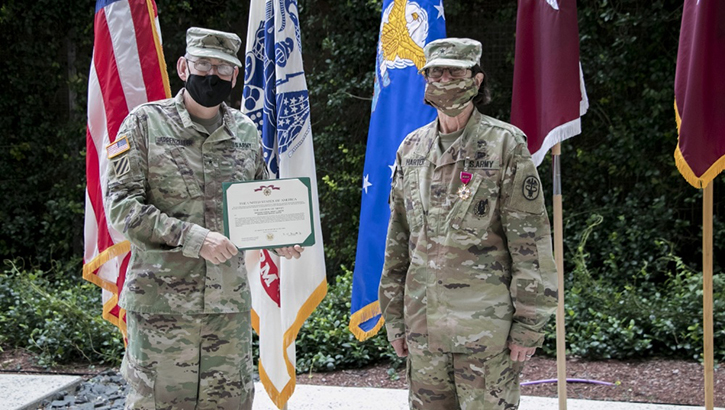
Army Brig. Gen. (Dr.) Wendy Harter, the first female commander in Brooke Army Medical Center’s history, turned over command to Army Brig. Gen. (Dr.) Shan Bagby, the first African American commander in BAMC’s history during a June 26 change of command ceremony at Joint Base San Antonio-Fort Sam Houston, Texas.
COVID-19 leads to innovation in military health care practices
Article
7/1/2020
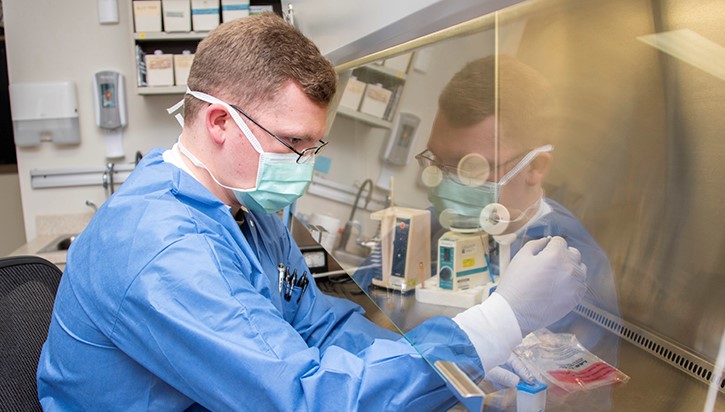
MHS thinks outside of the box to bring care to patients during pandemic
Supplemental Guidance 10 for Military Medical Treatment Facilities and Military Dental Treatment Facilities Directors in regards to Coronavirus Disease 2019
Publication
7/1/2020
How the military stays ready during disease outbreaks
Article
6/29/2020
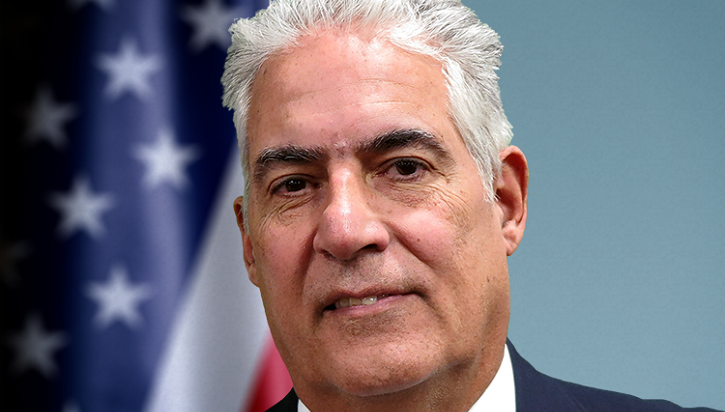
A Q&A with a health surveillance professional at Armed Forces Health Surveillance Branch
The role of data in the war against COVID-19
Article
6/29/2020
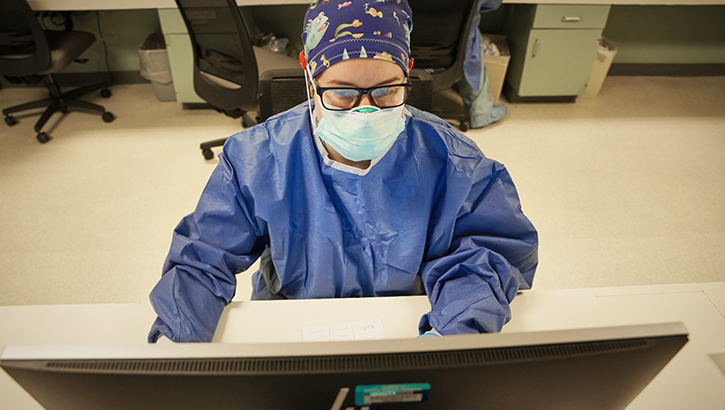
How DoD’s COVID-19 registry supports readiness and health
Summer PCS plans altered by COVID-19
Article
6/29/2020
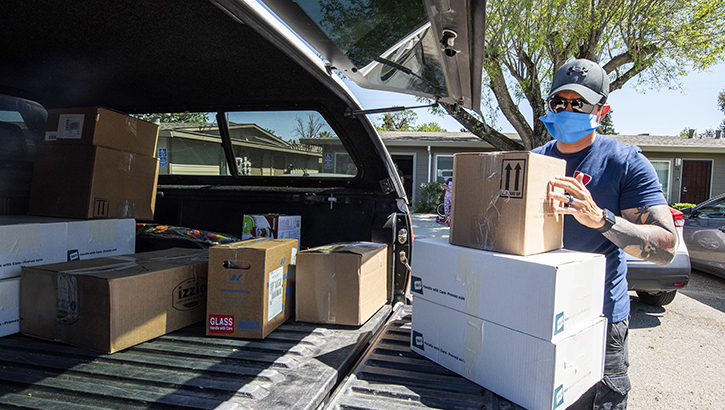
Service members and families have suggestions to keep you safe.
BACH Civilian earns RHC-A Civilian of the Year
Article
6/26/2020
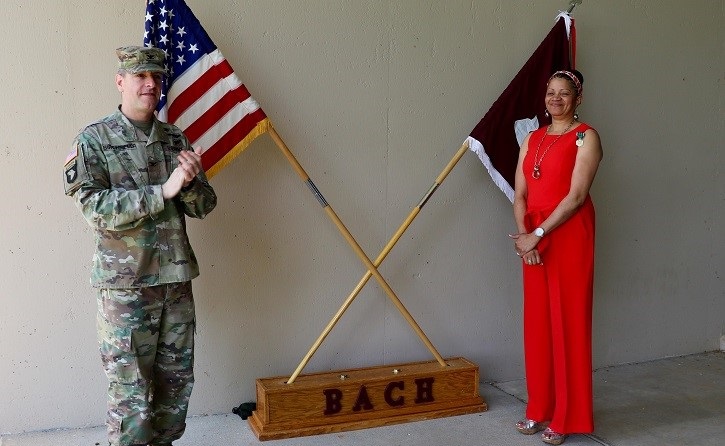
[Guidry] will advance to the U.S. Army’s Medical Command (MEDCOM) Civilian of the Year competition later this year.
DoD trains staff to collect convalescent plasma donations
Article
6/26/2020
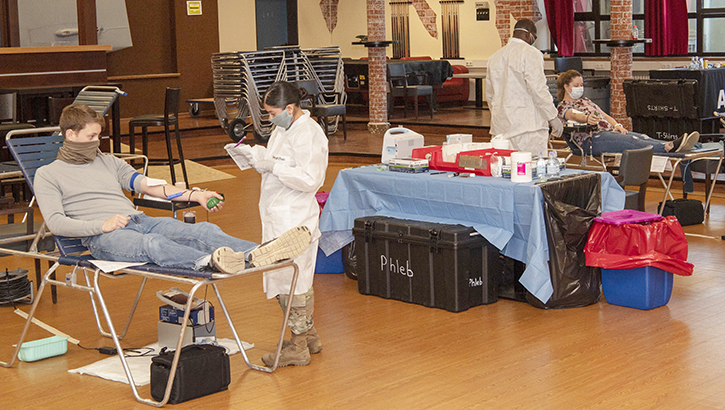
Learn about training features, locations, timetable
MHS Minute: DoD Focused on COVID-19 Testing and Treatment
Video
6/25/2020
Have you recovered from COVID-19, or tested positive for antibodies? Consider donating convalescent plasma. To learn how, go to https://www.militaryblood.dod.mil/
Army 2nd Lt. first to donate convalescent plasma at Benning
Article
6/24/2020
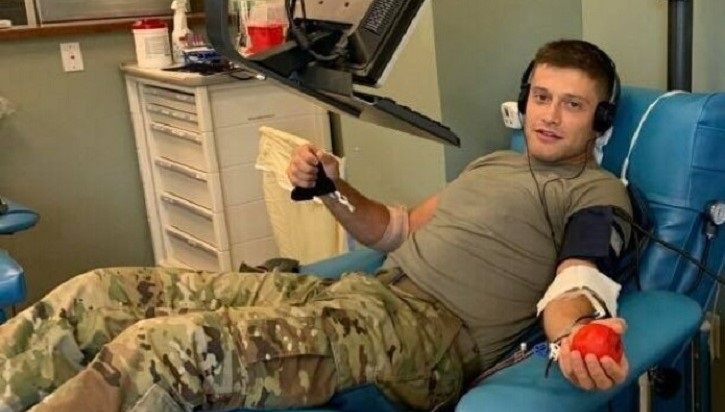
Convalescent plasma contains antibodies to fight the disease.
Pharmacy Operations Division (POD) Reverse HPCON Status Guidance
Publication
6/24/2020
Guidance for Outpatient MTF Pharmacies in Response to COVID-19
Download Letter to Beneficiaries
Publication
6/24/2020
This message replaces guidance issued on March 31. It explains actions military pharmacies are taking to keep services and visits safe during the COVID-19 pandemic, and it outlines your pharmacy options as a TRICARE beneficiary.































No hay comentarios:
Publicar un comentario